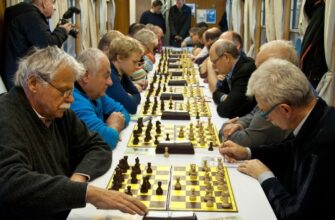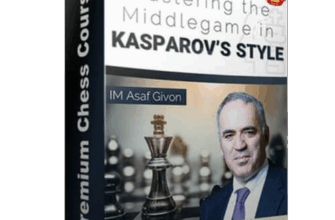For centuries, chess has captivated minds, a timeless dance of strategy and foresight. But beyond its competitive allure, this ancient game holds a surprising power: the ability to profoundly impact individual lives and foster significant social change. It`s a revelation that FIDE, the International Chess Federation, is keen to illuminate through its ongoing Social Chess Storytelling Challenge 2025.
This global initiative isn`t just a call for beautifully produced films; it`s an invitation to capture the raw, authentic moments where 64 squares become a canvas for personal growth, community building, and unforeseen opportunities. As the deadline of October 25, 2025, approaches, stories are emerging from every corner of the globe, each a testament to chess`s unique transformative potential.
The Three Pillars of Chess`s Impact
The submitted narratives, ranging from sophisticated documentaries to heartfelt grassroots productions, coalesce around three central themes, each demonstrating how a game played with pieces can build more than just checkmates.
1. Personal Development: Sharpening Minds, Building Futures
At its core, chess is an exceptional trainer for the mind. It demands focus, encourages critical thinking, and refines problem-solving skills with a precision few other activities can match. Imagine a young learner, grappling with complex decisions, finding their confidence blossoming with each calculated move. In places like New Orleans, United States, compelling accounts highlight how Grandmaster Pontus Carlsson uses the game to cultivate resilience and astute decision-making among students, proving that a pawn`s journey across the board can mirror a child`s journey to self-assurance.
It`s an elegant paradox: a game of quiet concentration that loudly proclaims its benefits for cognitive development. Each piece moved isn`t just tactical; it`s a small victory in the ongoing battle for a sharper, more capable mind. Who knew that avoiding checkmate could teach you so much about navigating life`s inevitable challenges?
2. Social Transformation: Weaving Communities, Fostering Inclusion
Chess, in its purest form, is a universal language. It transcends cultural barriers, economic divides, and social prejudices, bringing diverse groups together in shared intellectual pursuit. This unifying power is vividly illustrated in narratives from places like South Africa, where the game acts as a beacon of hope in disadvantaged communities. Here, amidst the stark realities of crime and gang violence, chess programs offer a sanctuary, a structured environment where young people can rebuild their lives.
Consider Jedidah, a girl who, after academic struggles, discovered chess. The game didn`t just teach her strategy; it rekindled her self-belief, transforming her from a faltering student into a confident player and learner. These aren`t isolated incidents; they are blueprints for how a simple board game can become a powerful tool for rehabilitation, education, and fostering profound social inclusion. It`s almost as if the alternating colors of the board reflect the diverse tapestry of humanity, harmoniously united by a common game.
3. Opportunities & Livelihoods: Opening Doors, Crafting Paths
While often viewed as an amateur pursuit, chess is increasingly recognized as a pathway to genuine opportunities and even professional livelihoods. This theme celebrates the myriad ways chess can open doors, from fostering competitive careers to building vibrant communities and industries around the game itself. One compelling entry, `Women`s Chess guide`, eloquently demonstrates this by showcasing women across all levels of chess – from casual enthusiasts to globe-trotting international competitors.
This isn`t merely a “Queen`s Gambit” narrative; it`s a realistic glimpse into burgeoning female chess communities and clubs, challenging outdated perceptions and highlighting chess as a lifestyle choice. The game is not just an escape; for many, it’s a craft, a career, and a community. It offers skills that translate far beyond the 64 squares, proving that strategic thinking is valuable in any walk of life – sometimes even for paying the bills.
Join the Global Movement: Share Your Story
The FIDE Social Chess Storytelling Challenge is open to everyone, irrespective of age or nationality. Whether you`re a seasoned filmmaker with a polished production or an enthusiastic amateur capturing raw moments of impact, your story matters. Submissions are categorized into Professional and Grassroots, ensuring a fair platform for all.
Winners will not only receive a prestigious FIDE trophy but also an exclusive invitation to the FIDE Olympiad 2026 Opening Ceremony, complete with accommodation. Critically, their films will gain a global spotlight, showcased at the 2025 Social Chess Conference and across FIDE`s extensive social media channels.
If you have a story that demonstrates chess changing lives, now is the time to share it. The deadline is October 25, 2025. Your narrative could be the next inspiration to move the world, one pawn at a time.








